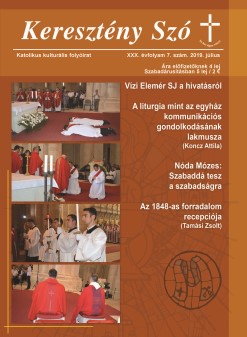
We kindly inform you that, as long as the subject affiliation of our 300.000+ articles is in progress, you might get unsufficient or no results on your third level or second level search. In this case, please broaden your search criteria.

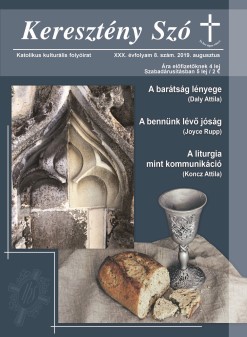
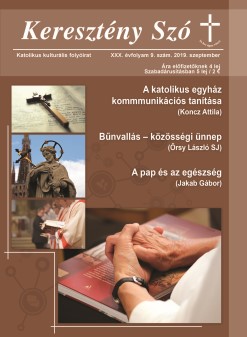


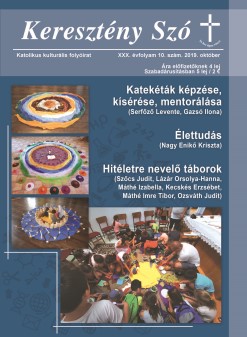

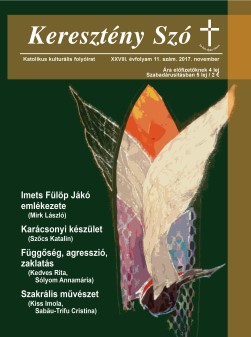

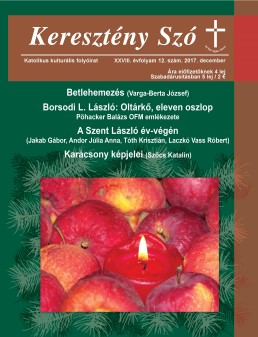



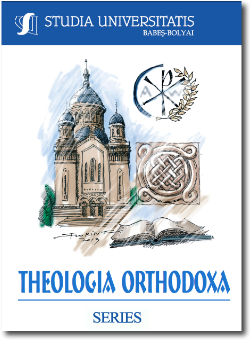
To speak of the Romanian village today is to consider a reality of life populated more and more by elderly people and children whose parents work outside the home, in town, or even abroad. The quality of life of the elderly remaining in the village is, in this context, a major concern for the political authorities and religious leaders. Indeed, many studies have shown that taking into account the religious and spiritual dimension contributes to the well-being of seniors.Recent research in Switzerland has highlighted the fact that many elderly people who live in senior care facilities are interested in talking about death with someone they trust. This trusted person is not necessarily the priest or chaplain. For many residents, this role is given to someone within the elderly person’s network of family and friends (spouse, daughter, niece, close friend, etc.). What happens when this network is empty and the elderly person is more isolated? We propose to think about how these observations can be transposed into a practice of spiritual care adapted to the context of the Romanian village.
More...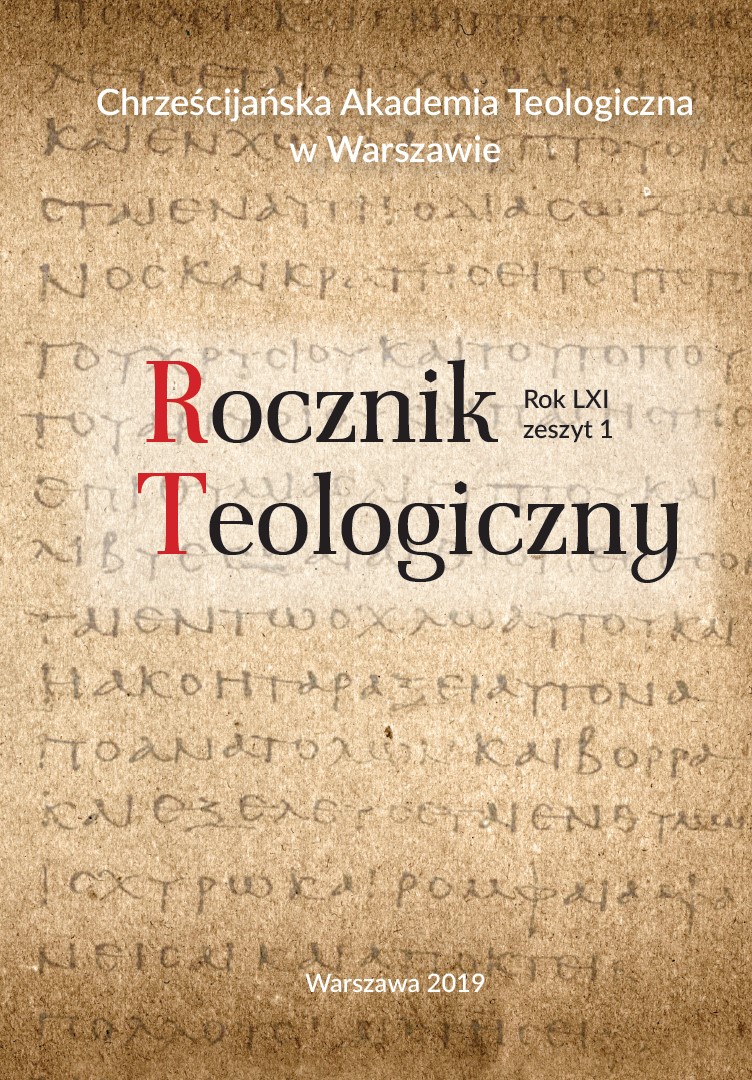
From its very beginnings the Pentecostal movement in Poland has not been a uniform movement. One of the differences concerns the interpretation of the baptism in the Holy Spirit. Must that experience be accompanied by glossolalia or not? Is it necessary to achieve salvation or only for spiritual growth? On the basis of these speculations, two trends were formed: one radical one which attached great importance to the charismata and treated them as necessary for the Church; and one moderate trend which did not underestimate the charismata, but did not pay primary importance to them, preferring to focus more on theological studies. The first trend was anti-ecumenical, the second was more ecumenical, at least with regard to the Protestant denominations. Initially, the radical trend dominated in the Church up until 1956, when it yielded to the moderate trend, before coming to the fore again in 1988.
More...
The Monastic Fraternities of Jerusalem are two Catholic institutes of consecrated life – the Brothers and the Sisters – founded in the 1970’s in France by Pierre-Marie Delfieux. Their aim is restoration after the Second Vatican Council. In the light of Canonical Law, the Monks and the Nuns are two independent congregations, but their charism – prayer in the heart of the city and for the city – is carried out together as they form both types of cloisters and common worship in every church under their auspices. The liturgy is identical in every Fraternity church and – which is the most important thing from an ecumenical point of view – is greatly inspired by Eastern liturgical tradition. This Eastern-style liturgy in both knowledge and assimilation of many non-Western liturgical elements, is an original space for ecumenical dialogue, particularly Catholic-Orthodox dialogue.
More...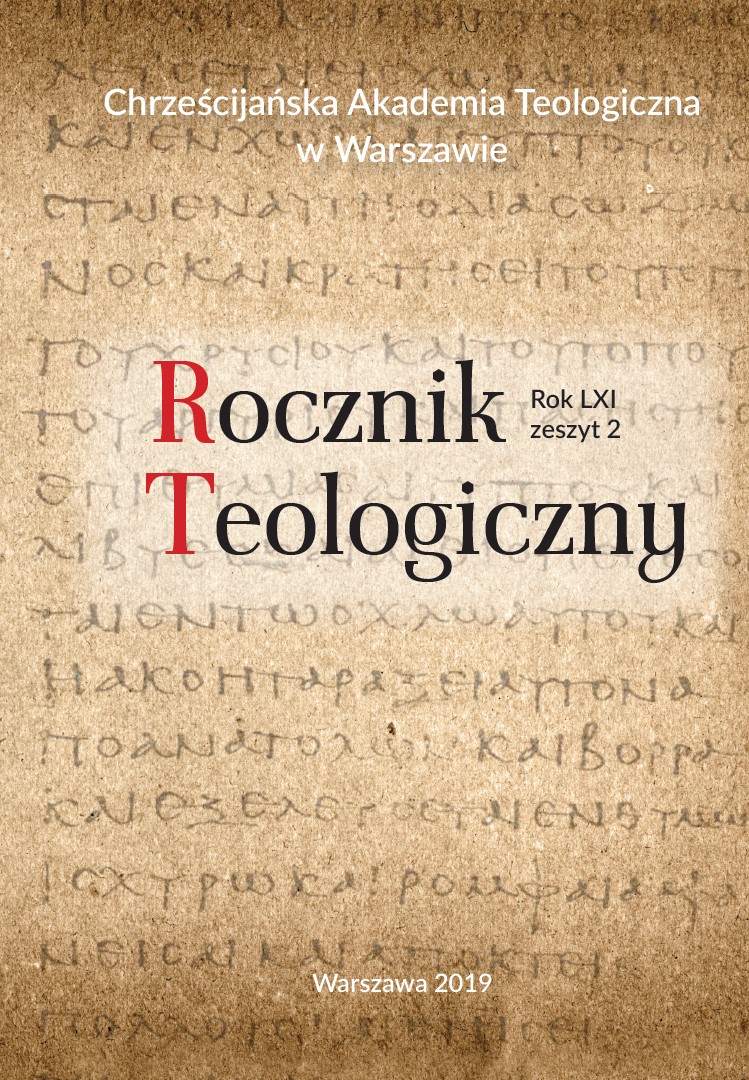
In recent years we have seen growing interest in the issues of Mariavitism. Researchers dealing with this subject matter primarily analyze historical contexts and (sometimes) the doctrinal functioning of the Old Catholic Church and the Mariavite Catholic Church. So far, no one has studied the development of Mariavitism, acting even within the structures of the Roman Catholic Church (in the years 1893-1906). Such a situation resulted mainly from lack of access to documents held in the archives of the Vatican and St. Petersburg. This text is a polemic with the theses of the book of Father Henryk Seweryniak “Święte Oficjum a mariawici”, who was the first to attempt to analyze the Mariavite movement in the light of Vatican archives. This polemic touches upon the level of historical, religious and theological facts. Their interpretation and the method of their presentation by Fr. H. Seweryniak arouse reservations of a methodological nature. The a priori assumption of the author of the work in question is the falseness of the vision and mystical experiences of the founder of the Mariavites congregation, and he subordinates historical facts and the religious studies in a non-theological perspective, but rather in the context of apologetics. Events, confirmed in texts and source documents as well as hypotheses that would deny the a priori assumptions of the author, constitute an absent discourse on the pages of „Święte Oficjum a mariawici”.
More...
The Theology of Methodism within the Polish-speaking area is hardly known. It regards itself as the middle way. In the last 50 years, it has been experiencing a renaissance, at least in English-speaking countries. The theology of Methodism is based on historical Church documents and theological positions developed in long-term ecumenical dialogues with partners with different confessional histories. This article is to acquaint readers with the Methodist understanding of theology. Methodism easily fits into theological dialogue because it has not created any new doctrines. The theology of Methodism reminds readers of the importance of, somewhat forgotten, biblical themes. They include: the teaching of sanctification, of the constantly working and transforming grace of God. Ecumenical bilateral dialogues with various Christian families led to important arrangements and the signing of a declaration of mutual recognition of the „pulpit and altar”. Methodism is part of the broadly understood Protestantism with an emphasis on evangelicalism.
More...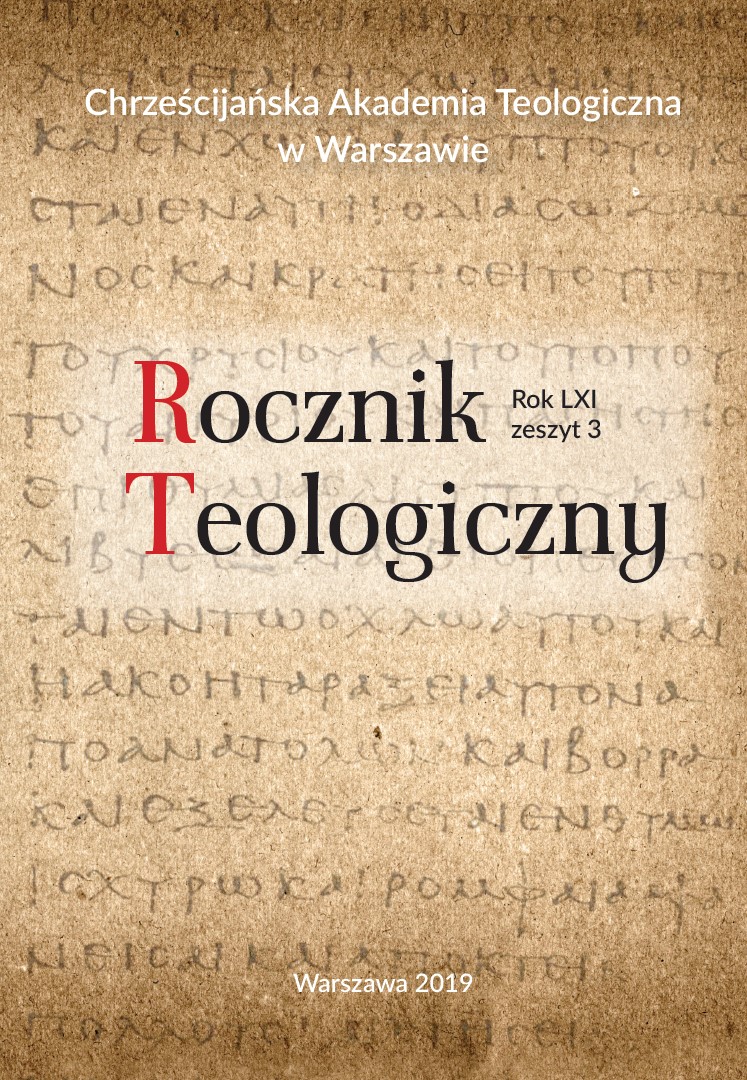
The paper concentrates on selected ideas of Reformation which are the source of inspiration for Church’s activity in modern world. These are: reliability of Christian message, doctrine of universal priesthood of all believers, recognition of person’s individual dignity and responsibility, fiducial character of faith, Church as the community of faith but also as communicational and educational community. Presented reconstruction of thoseideas does not refer to their shape in statu nascendi, but to their meanings formed within the development of Protestant tradition.
More...
In this study, a thesis is put forward that the ethical and educational views promoted by Mikolaj Rej in the second book of “Life of a Decent Man” were based mainly on the ancient Greek and Roman philosophy. This relates mainly to Stoical ethics, corrected by Rej in some points using concepts drawn from Aristotle. According to Rej, the purpose of human life is to achieve the virtue which ensues from the subordination of affections to reason. In his opinion, a decent man in the middle years of his life should resemble/imitate virtuous philosophers and pagan rulers. The task that Rej sets himself in the Second Book of his work “Life of a Decent Man” is to mould its readers in the spirit of ancient philosophy.
More...